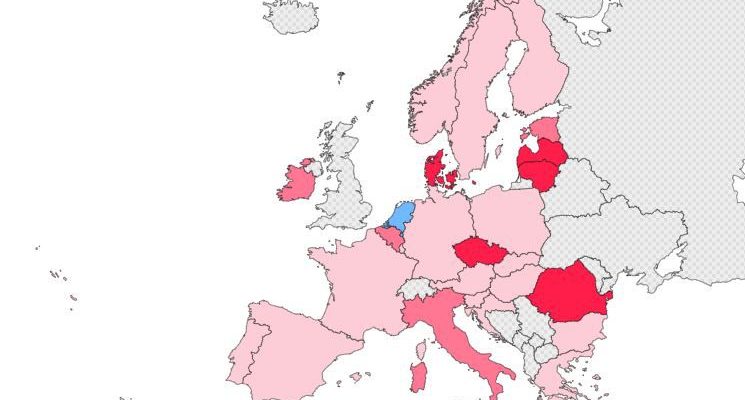Who suffered the most from the war and the current economic situation? This Friday, April 28, the European statistical institution Eurostat published the latest results for the European economy. Good news: this one observes a slight jump in the first quarter. But the still high inflation and the tightening of monetary policies could weigh on the rest of the year. A handicap, largely driven by energy prices, which have particularly increased since the Russian invasion of Ukraine on February 24.
For the whole of the European Union, GDP growth still rebounded by 0.3%, after a decline of 0.1% in the fourth quarter of 2022, specifies the statistics office. A new contraction would have been synonymous with recession for the EU, according to the generally accepted definition. Despite its recent slowdown, inflation indeed remains at a very high level (6.9% over one year in March in the euro zone) which strongly penalizes household consumption, the key driver of activity, despite an increase in wages.
While the overall increase in electricity prices – 20% on average over one year compared to the last half – is a key factor in this phenomenon, European countries do not all pay the same bill, depending on their market, and measures taken by governments, half of which have reduced taxes in this area, said Eurostat.
In the second half of the year, the largest year-on-year increases were recorded in Romania (+112%), Czech Republic (+97%), Denmark (+70%), Lithuania (+65%) and Latvia (+59%) . Conversely, much more moderate increases were observed in Austria, Germany, Poland and Bulgaria (4 to 5%). The increase in France was 9%. And household electricity bills have even fallen over a year in Malta – where prices are regulated – as well as in the Netherlands, where consumers have been helped in particular through tax reductions.
While Europe suffered the full brunt of the surge in energy prices following Russia’s invasion of Ukraine, a milder winter than expected and a decline in wholesale energy prices enabled the economy to catch its breath and avoid any winter recession.
And on the gas side? The average increase is even higher, a direct consequence of the sanctions between Europe and Russia. Gas bills have soared by 46% over the same period, reaching record levels, yet electricity is often indexed to gas prices… Eastern European countries, very dependent on Russian gas, have been heavily affected: gas prices have more than tripled in the Czech Republic, jumped by around 160% in Romania and Latvia, and they have doubled in Lithuania and Belgium. Only two countries (Croatia and Slovakia) recorded increases of less than 20%, according to Eurostat.
